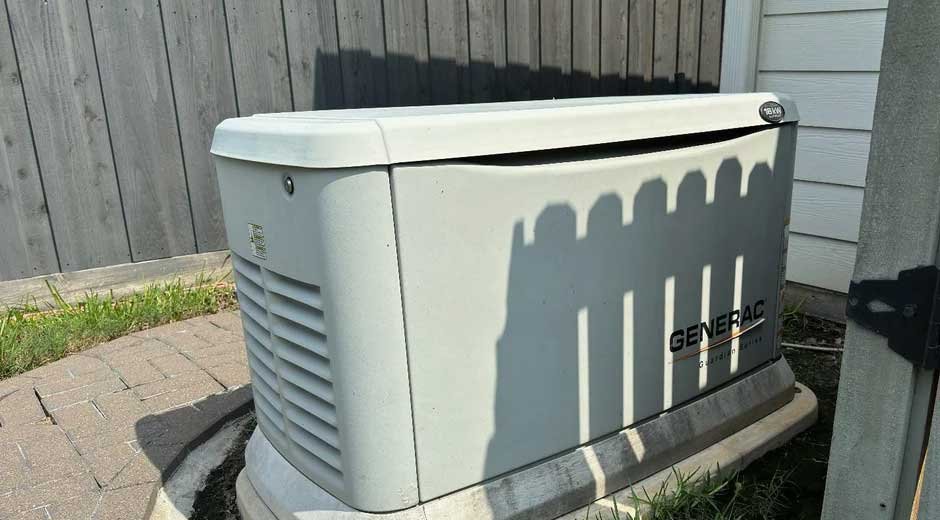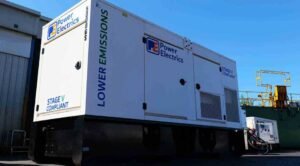Imagine a sudden storm hits, and your power goes out. The lights are off, the refrigerator stops working, and you can’t charge your phone. Power outages can be more than just inconvenient, they can disrupt your entire day or even your week.
That’s why having a backup generator for your home is so important. A generator can keep essential appliances running, provide light, and ensure you stay comfortable and safe until the power comes back.
Choosing the best home generator might seem overwhelming at first because there are so many options. However, understanding the different types of generators and their features will help you make a smart choice.
Contents
Types of Generators: Which One Is Right for You?
Not all generators are the same. They come in different types, and each one is best suited for specific needs. Here are the main types of generators you might consider:
Portable Generators
Portable generators are small and easy to move. They’re often used for camping trips or during short power outages. While they’re not strong enough to power a whole house, they can run a few key appliances like a fridge or some lights.
Inverter Generators
If you have sensitive electronics like computers or phones, an inverter generator might be the best option. These generators provide clean and stable power, so they won’t damage your devices. They’re also quieter than most other types, which is great if you’re using one in a neighborhood.
Standby Generators
A standby generator is a larger system that’s installed permanently outside your home. It connects directly to your home’s electrical system and can automatically turn on during a power outage. These generators often run on natural gas or propane and are strong enough to power most of your home.
Whole House Generators
The best whole-house generator is the most powerful option. They’re designed to supply electricity to every part of your home, including large appliances and heating or cooling systems. These systems ensure your house stays fully functional during an outage, no matter how long it lasts.
Features to Consider When Choosing a Generator
Picking the best generator means understanding some key features. Knowing what to look for will help you find one that fits your needs and works well for your home.
Power Output
Generators are measured by how much electricity they can produce, which is called wattage. To find the right generator, you need to figure out how much power your essential appliances use.
For example, a refrigerator might need 800 watts, and a heater could require 1,500 watts. Add up the wattage of the appliances you want to run to make sure the generator you choose can handle the load.
Fuel Type
Generators use different kinds of fuel, such as gasoline, diesel, propane, or even solar energy. Gasoline is easy to find, but it might not be available during an emergency.
Propane and natural gas are cleaner options and can be stored for a long time. Solar generators are environmentally friendly but may not produce enough power for large appliances.
Runtime
Runtime refers to how long a generator can run on a single tank of fuel. A generator with a longer runtime is better for extended outages because you won’t have to refill it as often. Make sure the generator’s runtime matches your needs.
Noise Level
Some generators can be quite loud, which might bother you or your neighbors. Inverter generators are usually quieter, making them a good choice for residential areas. If you’re looking for a quieter option, check the generator’s noise rating before buying it.
Installation and Maintenance
Installing a generator can be simple or complicated, depending on the type you choose. Portable generators are easy to set up, but standby or whole-house generators often need professional installation.
Once installed, regular maintenance is important to keep the best backup generator running smoothly. This includes checking the oil, cleaning filters, and testing the system.
Comparing Generator Options
When looking for the best generator, it’s helpful to compare models from different brands. Reputable manufacturers often provide reliable and high-quality products.
Reading customer reviews can give you an idea of how well a generator performs in real-life situations. Keep in mind that a higher price doesn’t always mean better quality, so focus on the features that matter most to you.
How to Plan Your Budget
Generators come in a wide range of prices, from a few hundred dollars for a portable unit to several thousand for a whole house system. Before making a decision, think about both the upfront cost and the long-term expenses, such as fuel and maintenance. Sometimes, spending a little more upfront can save you money in the long run if the generator is more efficient and durable.
Tips for Choosing the Best Generator
To make sure you pick the right generator for your home, consider the following tips:
Calculate Your Power
This will help you avoid buying a generator that’s too small or too large.
Plan for the Future
If you think your electricity needs might grow, consider getting a generator with extra capacity.
Place Your Generator
It should be in a dry, well-ventilated area to ensure safety.
Look Into Transfer Switches
These devices help connect your generator to your home’s electrical system safely.
Why Fuel Efficiency Matters
Fuel efficiency is an important factor when choosing a generator. A fuel-efficient generator uses less fuel to produce the same amount of power, which can save you money and make the generator more environmentally friendly. Some generators come with special modes, like eco-mode, that adjust the power output to match your needs and reduce fuel consumption.
Keeping Your Generator in Good Shape
To ensure your generator is ready when you need it, regular maintenance is essential. Here are some key steps to keep your generator running smoothly.
Check the oil regularly and refill it when necessary. Clean or replace air filters to keep the engine running efficiently. Test the generator periodically to make sure it’s in working condition.
The type of maintenance required can vary depending on the fuel type. For example, gasoline generators may need more frequent cleaning, while propane generators are generally easier to maintain.
The Importance of Warranties and Customer Support
A good warranty can give you peace of mind by covering repairs or replacements if something goes wrong with your generator. Before buying, check the warranty details and see how long it lasts.
Also, look into the manufacturer’s customer support options. Having access to helpful support can make it easier to troubleshoot problems or get advice on using your generator.
Setting Up Your Generator
Installing a generator, especially a standby or whole-house model, requires careful planning. Proper installation ensures the system runs safely and efficiently.
Professional Installation
For standby and whole-house generators, professional installation is a must. A licensed technician will assess your home’s electrical system and determine the best location for the generator.
This ensures the unit operates safely and complies with local regulations. The technician will also connect the generator to your home’s power supply, making sure it’s ready to activate during an outage.
Placement and Positioning
Generators should be placed in a well-ventilated area, away from windows and doors, to avoid carbon monoxide buildup. They also need a sturdy, level surface to operate safely. For portable generators, make sure they’re positioned outside, never inside a garage or enclosed space.
Making the Most of Your Generator
Once your generator is installed, managing its use effectively can make a big difference during emergencies.
Load Management
Load management means controlling how electricity is distributed to your home’s circuits. Some generators come with advanced load management systems, allowing you to prioritize power to essential appliances like refrigerators and heating systems. This ensures critical devices stay operational without overloading the generator.
Safety Features
Safety is a top priority when using a generator. Look for models with automatic shutdown systems that activate if the generator overheats or runs low on oil.
Many newer generators also have built-in carbon monoxide detectors that shut the unit off if harmful gas levels rise. These features protect your family and home during operation.
Costs and Value
Generators come in a wide price range, so it’s important to balance your budget with your needs. Portable generators typically cost between $500 and $1,500, while whole-house generators can exceed $5,000.
While it might be tempting to choose a cheaper model, investing in a reliable generator from a trusted brand often saves money in the long run. Reputable manufacturers offer better warranties and customer support, giving you added peace of mind.
As you weigh your options, consider factors like size and capacity, especially regarding gas generator size for homes. What is essential, however, is making a decision based on informed analysis rather than impulse.
Choose the Best Home Generator
Choosing the best home generator is an important decision that requires careful thought. By understanding the different types of generators and their features, you can find one that meets your needs and budget.
Whether you’re looking for a small portable generator or a powerful whole-house system, the right choice will ensure your home stays comfortable and functional during any power outage. With a reliable generator, you’ll be prepared for whatever comes your way.
For more helpful tips, check out the rest of our site today.








